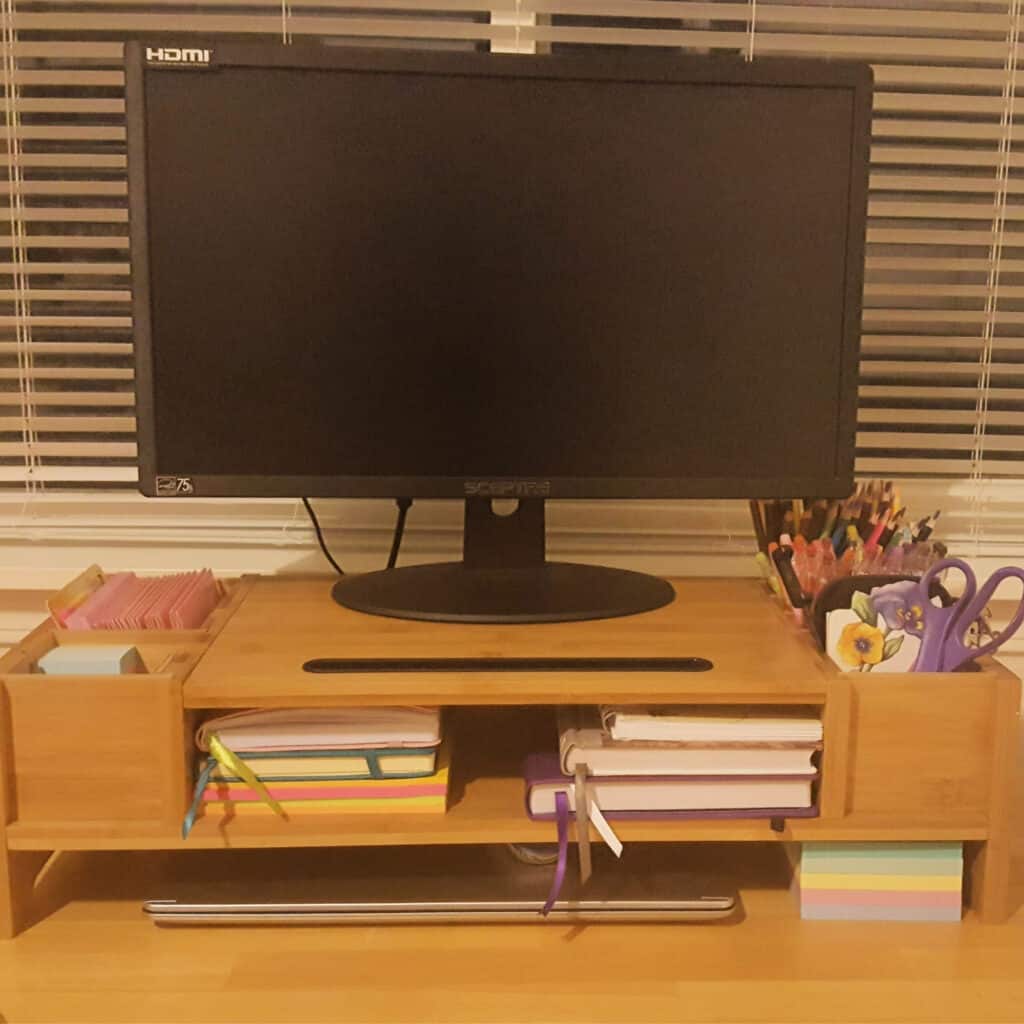Just when we think the world may be moving back towards normal, the process stalls. States are postponing their re-openings and going back to the office doesn’t look as promising as it did even two weeks ago. In reality, this is our new “normal” and may be for quite a while. If you normally work in an office or workplace away from your home, you do not feel normal. You struggle to define working hours and working space when you are with family or roommates 24/7. It’s time to take steps to thrive while working from home.
Lines between work and home blur when everyone is isolated. Your children will assume you are available because you are there. You can’t ignore them because they have basic needs of care and feeding that must be met. Zoom meetings and conference calls are a challenge with chatter, play and bickering in the background. Suddenly, your internet drops more often because everyone is using it for work and school. So, how do you thrive when you feel you are barely surviving?
#1 – Define your work hours
Your works hours are probably the same as they were before the pandemic. Affirm for you family and friends that you still have a job and specific work hours. The only difference is that you no longer commute to be able to work.
Before being laid off, I struggled with others thinking that since I am home, I’m available all the time. Unfortunately, that was not the case for most of the day. I worked from eight to five every day. To maintain integrity, interrupting my work day meant reporting “leave time” that cut into vacation days. Be strong and firm about your commitment to your employer.
#2 – Define your work space

Work requires concentration and quiet. The kitchen table is not a good work space. My hubby tried to work from the dining room for the first few weeks. Our dining room is open concept with our living room and kitchen. It worked okay until I had to start working from home as well. In order to reduce distractions for him, we set up a table in the corner of the bedroom so he didn’t have to move his office every time we ate dinner or had company.
Because my dream and goal has been to transition to working at home, I had already claimed our third bedroom as a home office/craft room. He happily conceded in order to keep my creative chaos from taking over our house. All that to say, when I transitioned to working from home after spring break, I already had a designated work space. The key was creating a work environment in that space which included a desk and a second monitor. Being able to close the door during Zoom and Teams meetings was very important to the success of both of us working from home.
#3 – Make plans for your children
My daughters-in-love are coping with this aspect of working from home. They dearly love their children but they also know that they cannot provide them the level of care needed while they are supposed to be working. They have had to make adjustments to create working space where they are away from the kid noise during their work time while their hubbies care for children or arrange for out of the home care or mommy’s helpers.
Recognize that your children are as frustrated as you are about the isolation caused by the pandemic. They miss their friends and are tired of being at home. Their lives have been turned upside down, too. Be creative with caring for and entertaining them. Do you have a friend that works opposite shifts from you? Offer to trade childcare. Give a shout out to grandmas that are retired and offer time or services in exchange.
If you have an in-home sitter, create a schedule for coffee breaks like you would take at work. Use that time to give your sitter a break and spend a few minutes catching up with the kids. Let them share art work they created that day or tell you about what exciting creature or plant they found on a nature walk. In the same way that you appreciate affirmation via email or phone from your supervisor that all is well, they need those few minutes at break and lunch time to know that you value them.
#4 – Reclaim your commute time
Don’t add your commute time to your work day! Use that time for you and your family. Take time to cook a meal instead of picking up takeout. Spend time reading for yourself or read to your children during what was your morning commute. Get outside and absorb some natural Vitamin D.
Set a timer for starting and quitting time, coffee breaks, and lunch. Working from home does not mean that all you do at home is work. Your job (hopefully) still requires a finite number of hours from you. Do not abuse yourself or your family by giving away free time. Have integrity and work the hours you are expected to work, but have the sanity to thrive by closing the door at the end of the day to enjoy being at home.
#5 – Be creative with evenings and weekends
Use your weekends for more than cleaning house. Reestablish old traditions or create new ones during this “forced” family time. Depending on where you live, you may be back to restrictions of no more than five people or an immediate household gathering in one place. So, find something to do together like playing games, working puzzles, cooking together, creating a flower patch, learning photography.
Pinterest is full of creative ideas right now for activities with your children, spouse, or household members. Let a different person choose an activity for the week or weekend. Resurrect games from your childhood to teach your kids like foursquare, jump rope, hopscotch, etc.
Rather than binge watch the television options, find a way to set up an outdoor theatre and roast hotdogs and marshmallows while watching a family-friendly movie. Tell stories from your childhood of camping and firepits. This is a great time to learn about your family history and share it with your kids.

#6 – Don’t skip self-care
It is more important than ever to take care of yourself. Create moments in your day to focus on your peace, sanity, and desires. Set a timer for a 20-minute family time out that requires everyone to choose a quiet, self-entertaining activity. Let them know that both adults and children need quiet time to re-energize for the day ahead or to relax before bedtime.
Your care for yourself directly impacts your care for others. If you are stressed and easily upset, your family will sense that and respond in kind. A quiet cup of tea for you and yogurt smoothies for the little ones while soothing music plays in the background will calm and renew everyone. Here’s a bit of grandmotherly advice: now is not the time for your little ones to give up napping. You need them to nap or have required quiet time to maintain your sanity.
#7 – Reach beyond your four walls
Loneliness strikes all of us during isolation. We miss our gatherings at work, school, and church. Even if you do not live alone, there is an element of loneliness caused by our inability to socialize.
Start being a more faithful communicator. You can send daily texts or emails. Post a note to someone on Facebook or Instagram. Better yet, resurrect the art of writing notes and using snail mail. Commit to staying in touch especially with those that don’t have extended family or seemed lonely even before the pandemic.
My grandchildren love getting mail. At Christmas time, we give them gifts of age-appropriate magazine subscriptions so they get personal mail throughout the year. We ask them about the most current issues and are entertained by the jokes they share from the newest issues. But they love getting personal notes and cards even better. We all have that childlike desire to know that someone thinks we are special. Make someone’s day by sending a note and you may just get kind words written in return.
#8 – Choose to make the best of the situation
One of my dad’s favorite sayings was “this too shall pass” and it will. We may not go back to our old normal but there will come a time when we do not have to isolate ourselves away from the world. If you have children still at home, utilize the extra time with them to build stronger relationships and really get to know their likes, dislikes, dreams, and desires. Share with them how spending time with them makes your life better.
Don’t allow frustration or boredom to steal the value of this precious time. Utilize this time to create memories that would not have been possible if you were still commuting an hour to work every day or if your children were participating in multiple team sports. Go explore a park, lake, forest or beach that you have always wanted to see together or revisit a place that holds special memories for your family.
Survive the pandemic by thriving as a family. You can do this! When this pandemic is over, I pray that your relationships are stronger, and your spouse and children feel more loved. Having a heart for home is creating a place where your family and guests feel valued and loved. Take time during this pandemic to express your love and care without reservation.
Thank you for letting me share my heart for home and family!


